The EMGS Nominating Committee has completed the selection of candidates for this year's election. This year we will be electing a Vice President-Elect and five Councilors. Each of the candidates has
graciously agreed to volunteer their time and energy to serve the Society and its members. If you happen to meet any of them, please take a moment to thank them for being willing to serve our society! The
candidates' biographical summaries can be found below. Please keep in mind that the best way to show support for these individuals is by participating in the election process this October!
Voting Ends Monday, October 6th at
11:59 PM Eastern
VOTE
Presidential Candidates

Ash Prakash
University of South Alabama
Dr. Aishwarya (Ash) Prakash is an Associate Professor in the Department of Biochemistry and Molecular Biology at the University of South Alabama. She received her Ph.D. in 2010 from the University of Nebraska Medical Center and completed her postdoctoral training at the University of Vermont. Her research integrates structural biology, biochemistry, and molecular genetics to uncover the mechanisms that underpin DNA repair and genome stability.
Her lab is at the forefront of base excision repair (BER), with a focus on how DNA glycosylases like NEIL1 and NEIL2 orchestrate the repair of oxidized DNA bases and regulate mitochondrial genome maintenance. One of her most paradigm-shifting discoveries revealed that NEIL1 can toggle between replication and repair by dismantling higher-order replication protein structures—a critical insight into how cells maintain genomic integrity. She has also pioneered the development of nanobodies against NEIL1, enabling powerful cellular tracking tools that overcome traditional antibody limitations.
Expanding into clinically relevant models, Dr. Prakash investigates the functional consequences of variants of uncertain significance (VUS) in mismatch repair genes linked to Lynch syndrome. Her lab developed a novel fluorescence-based reporter system to detect microsatellite instability, a tool now widely adopted by other groups. These efforts are expanding to explore how environmental toxicants like cadmium contribute to cancer risk in genetically predisposed populations.
Dr. Prakash’s research is supported by NIH, including a prestigious K99/R00 Pathway to Independence Award and an NIEHS Outstanding New Environmental Scientist (ONES) R01 grant. Her work is also supported by the NSF as well as the American Cancer Society (ACS). She has authored over 40 peer-reviewed publications and delivered more than 40 invited talks nationally and internationally. A recognized leader in genome instability, she has chaired multiple conferences and seminars, including Gordon Research Seminars, and served on scientific committees for the Environmental Mutagenesis and Genomics Society (EMGS). Her contributions have been recognized with the EMGS Young Scientist Award (2018) and the Samuel H. Wilson Award (2024).
In addition to her scientific work, Dr. Prakash is committed to mentorship and outreach, including a partnership with a local high school where she promotes science careers—particularly for young women in STEM.
|
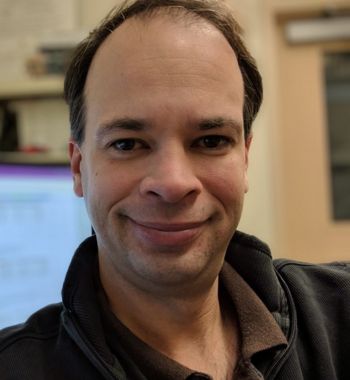
Brian Chorley
US EPA
Dr. Brian Chorley is a cell and molecular biologist at the Center for Computational Toxicology and Exposure (CCTE) at the US EPA where his primary research interests are the identification of genomic and epigenomic biomarkers to inform chemical risk assessment and prioritization. He also leads task and product groups that focus on bridging short-term, in vitro measures of chemical exposure to the translative impact on adverse consequences to human health.
Before joining US EPA, Brian completed his Ph.D. in 2005 from North Carolina State University and a postdoctoral fellowship at the National Institute of Environmental Health Sciences (NIEHS).
Brian has served on multiple workgroups, committees, and review boards, including as a former full review board member of the Department of Veterans Affairs merit grants, Co-chair of the Health and
Environmental Science Institute (HESI) eSTAR Committee, as well as Co-chair of the miRNA Biomarkers Workgroup. Brian also is Co-Editor-in-Chief for Mutation Research – Reviews in Mutation Research
and on the International Editorial Board for Toxicology In Vitro. Elected positions include former President and Councilor on the Board of Directors for the Genetics and Environmental Mutagenesis
Society (GEMS) and President for the Molecular and Systems Biology Specialty Section for Society of Toxicology (SOT).
|
Treasurer Candidate
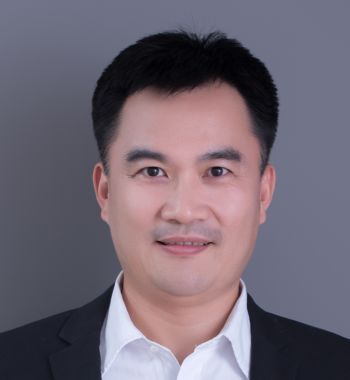
Shan Yan
University of North Carolina at Charlotte
Dr. Shan Yan is a tenured Full Professor in the Department of Biological Sciences and Affiliated Faculty with the School of Data Science at UNC Charlotte. He has initiated and directed the Charlotte Biology and Biotechnology Exchange Group since 2017. He is also Program Leader of the Genome Integrity and Cancer Initiative. His research laboratory is focused on the molecular mechanisms of genome integrity and cancer etiology using Xenopus egg extracts and mammalian cell lines as models systems.
Research projects in his lab include DNA single-strand break repair and signaling, oxidative stress response, DNA replication stress response in genome integrity, and DNA repair and DNA damage response pathways in human diseases including cancer. His research program is highly interdisciplinary and collaborative. Dr. Yan often with his trainees has published research findings in top-tier journals such as Nature Communications, PNAS, Nucleic Acids Research, Cancer Research, Nature Structural & Molecular Biology, Trends Cell Biology, and eLife. His lab has been supported by external funding agencies including the NIH (R01s, R03, R21, and R15s). He has extensive and effective mentoring experience to 2 junior tenure-track faculty members, 3 research faculty/staff, 4 postdoctoral fellows, 13 graduate students, and >25 undergraduate students. He has served as grant reviewer for the NIH study sections (MG, CSRS, RTB, etc.) and NSF Review Panels. Dr. Yan also serves as managing editor or editorial board for several journals and manuscript reviewer for ~50 scientific journals including Science and PNAS.
Dr. Yan has been an active EMGS member since 2017 and an EMGS Councilor since 2024. He has served on several EMGS committees including the Awards and Honors Committee (Chair 2024-present; Co-Chair 2023-2024), Publication Policy Committee (Chair 2022-2024; Co-Chair 2020-2022), and the News Committee. Representing EMGS, Dr. Yan served as the Director of the Board (2022-2023) and Inaugural Member of the newly formed Publications Committee (2020-2023) for FASEB for publication affairs and science policy advocacy activities. Dr. Yan is currently on the Editorial Board of the EMGS flagship journal EMM, and has led/co-edited two EMM Special Issues titled “Environmental health and genome integrity” (Vol 61, Issue 7, in August 2020) and “Inspiring basic and applied research in genome integrity mechanisms: dedication to Samuel H. Wilson” (Vol 65, Suppl 1, 2024). He recently led an EMGS Task Force (2024-2025) in the search of next EMM Editor-in-Chief (EIC) and successfully identified and selected Dr. Robert W. Sobol. He also Co-Chaired several platform sessions and participated in the judging for the annual poster and oral presentations for trainees at EMGS annual meetings. Dr. Yan has proposed and initiated the EMGS Undergraduate Research Scholarship Program.
|
Secretary Candidates

Natalie Gassman
University of Alabama at Birmingham
Natalie R. Gassman received a BA in Chemistry from Michigan State University. She earned a PhD in Chemistry from the University of California, Los Angeles, under the mentorship of Shimon Weiss, PhD. She held postdoctoral positions at Wake Forest University School of Medicine and the National Institute of Environmental Health Sciences (NIEHS).
Her postdoctoral training at NIEHS under the mentorship Dr. Samuel H. Wilson focused on the role of DNA repair in response to environmental exposures. Specifically, she examined how exposures to agents like bisphenol A induced oxidative DNA damage and modulated DNA repair responses.
In 2015, Natalie joined the University of South Alabama Mitchell Cancer Institute, continuing her research into environmental exposures and their impact on DNA damage response and repair. In 2021, she moved her research program to the University of Alabama at Birmingham, where she is an Associate Professor of Pathology, with joint appointments in Nutrition Sciences and the O’Neal Comprehensive Cancer Center. Her work continues to examine the influence of environmental exposures on DNA damage response and repair, and investigates how DNA repair proteins and repair capacity are modified in the context of cancer. She has developed a versatile DNA damage detection method to measure deficiencies in DNA repair pathways and is employing it to understand how DNA repair capacity changes provide cancer cells with a survival advantage.
Natalie is an author of over sixty peer-reviewed journal articles and book chapters related to DNA damage detection, DNA repair, and the influence of environmental exposures on genomic stability. Natalie is a full member of the Society of Toxicology and is currently a councilor for the Southeastern Regional Chapter. Natalie has been a member of EMGS for over ten years and has held a number of leadership positions, including being the New Investigator co-chair for the 2017 annual meeting, the co-chair of the Education, Student and New Investigator Affairs and Membership and Professional Development Committees. She also previously served as a councilor. She is currently the program chair for the 2026 EMGS virtual meeting. In her work with EMGS, she has enhanced member engagement, worked to enhance professional growth opportunities across all sectors of EMGS, and bolstered member retention and recruitment efforts. Natalie is passionate about EMGS and the inclusive network it provides for its members at all levels. She hopes to continue to serve the society in this new role.
|
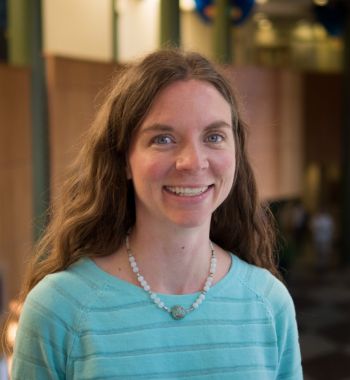
Jackie Goodrich
University of Michigan
I am a Research Associate Professor in the Department of Environmental Health Sciences at the University of Michigan School of Public Health. I obtained a doctorate in toxicology from the University of Michigan. The overarching goal of my research is to identify environmental factors that modify the epigenome and increase risk for disease throughout the lifecourse.
My expertise spans molecular biology and public health with an emphasis on environmental epidemiology, toxicology, and epigenetics. I apply this expertise to study the effects of toxicants on children and occupationally-exposed workers. I am a co-leader of the national Firefighter Cancer Cohort Study. I also co-lead the Pan Omics and Data Sciences Core of the Michigan Lifestage Environmental Exposures and Disease Center.
I have been active in EMGS since joining as a postdoctoral fellow in 2013. I have given invited talks at past EMGS meetings and have co-chaired five symposia.
In 2016, I became the co-chair of the Epigenetics Special Interest Group (SIG). I remained in this role until 2021. During this time, I led efforts to change the name of the SIG (now Epigenomics SIG), increase membership, and increase the number of submissions for Annual Meeting symposia with epigenomics content. I served as an EMGS Council member from 2018-2021. I became co-chair of the Diversity Equity and Inclusion subcommittee in 2021, and continue that role (as chair) now in the new Outreach and Support subcommittee. In my time with these committees, we designed and implemented several policy and procedural changes within the society that improve the membership experience for all.
I am passionate about environmental epigenomics and genomics – including the science, its translation, and training the next generation of scientists in this field. Serving EMGS as secretary would allow me to give back to the society with my organizational and communication skills and to share ideas to ensure our society remains a welcoming place where all members can thrive.
|
Councilor Candidates

Javed Bhalli
Frontage Laboratories
Dr. Bhalli received his Ph.D. in Biotechnology in 2009 from the National Institute for Biotechnology and Genetic Engineering (NIBGE), Pakistan in a collaborative program between NIBGE, Pakistan and University Autonoma de Barcelona (UAB), Spain. His research topic was “Genotoxic Environmental Risk Assessment of Pesticides Using Molecular Biomarkers” where he worked on the people exposed to Pesticides in the pesticide manufacturing industry and agriculture fields. Dr. Bhalli worked as Associate professor in Pakistan.
In 2008, he left Pakistan to join National Center for Toxicological Research (NCTR), US Food and Drug Administration (FDA) as postdoctoral fellow and played a pivotal role in the development of an in vivo gene mutation assay, the Pig-a assay. Dr. Bhalli joined Covance Laboratories (LabCorp) in 2012 as Study Director in Genetic Toxicology. He was a Subject Matter Expert (SME) for the in vivo GeneTox assays. Dr. Bhalli joined MilliporeSigma (BioReliance) in 2017 as Associate Director and lead the team of GeneTox scientists to expand and grow business. In 2018, he moved back to Indiana to reunite with his family and joined Covance Laboratories (LabCorp) Safety Assessment (General Toxicology) team as Sr. Study Director. He led regulatory and non-regulatory studies in small and large animals for small and large molecules. Dr. Bhalli joined Frontage Laboratories in September 2021 as Director of Safety and Toxicology.
He is currently working as Vice President of Safety and Toxicology at Frontage Laboratories. His area of interest for the past 10 years has been pre-clinical drug development with focus on toxicology and safety assessment of the potential drug candidates. Dr. Bhalli is a Board-Certified Toxicologist (DABT) with the American Board of Toxicology. He is an active member of the US Environmental Mutagenesis and Genomics Society (EMGS), Society of Toxicology (SOT), and American College of Toxicology (ACT). He is Member of Editorial Board of the journal of Environmental and Molecular Mutagenesis (EMM). He has published a number of research papers and book chapters in peer reviewed journals.
|

Joanna Klapacz
DOW
Dr. Klapacz is a human health toxicologist within the Toxicology and Environmental Science organization of The Dow Chemical Company, where she is responsible for conducting safety testing, chemical registrations, human health risk assessment, and research related to chemical carcinogenesis.
Dr. Klapacz has started her career in the environmental mutagenesis field during her Ph.D. training at the lab of Dr. Ashok Bhagwat studying various mechanisms of transcription-associated mutagenesis, including spontaneous C-to-T and G-to-A transitions, as well as AID-induced somatic hypermutation during the antibody diversification process.
She has earned her Ph.D. in Biochemistry with Minor in Biology from Wayne State University (Detroit, MI) in 2003 and subsequently joined the lab of Dr. Leona Samson as a postdoctoral fellow at the Massachusetts Institute of Technology’s Center of Environmental Health Sciences (2003-2007, Cambridge, MA). There, she investigated DNA damage, DNA repair pathways and signaling response pathways to Sn1 and Sn2 alkylators. Dr. Klapacz has also studied epigenetic changes following chemical exposures under the direction of Dr. Bhaskar Gollapudi at the Dow’s toxicology lab (2008-2009, Midland, MI) as a postdoctoral scientist.
Currently, Dr. Klapacz continues working with various DNA reactive industrial chemicals, as a part of her extensive chemical portfolio, contributing her expertise in the field to the study of industrial chemicals-induced mutagenicity and carcinogenicity, and utilizing specific chemical assessment frameworks such as Adverse Outcome Pathways, Mode-of-Action and Toxicological Integrated Approaches to Testing and Assessment.
Dr. Klapacz has 16 years of experience working as a regulatory toxicologist supporting the safe use of industrial and consumer chemicals. She is passionately dedicated to utilizing alternative assessment techniques, including in vitro models, read-across, NAMs and QSAR analysis in the next generation safety assessment frameworks for the products in her portfolio. She has also been active in various STEM mentoring programs throughout her career. Dr. Klapacz has served on various committees like the HESI Sustainable Chemical Alternatives Committee, Interstate Technology Regulatory Council, ECETOC Conceptual Framework for Polymer Risk Assessment study section, the Sustainable Chemicals through Contemporary Toxicology Specialty Section of the Society of Toxicology, The Business and Industry Advisory Committee to the OECD Adverse Outcome Pathways Panel, and The Center for Advancing Risk Assessment Science and Policy Group within ACC among others. She is an author/co-author of 25 publications including peer-reviewed articles and book chapters such as Genetic Toxicology in the “Casarett & Doull’s Toxicology: The Basic Science of Poisons” 9th and 10th Editions as well as Epoxy Compounds—Olefin Oxides in the “Patty’s Toxicology” 7th Edition. She has been a member of the EMGS since 2009.
|

Wen Sun
Pfizer, Inc.
Wen Sun is the Director of the Genetic Toxicology department at Pfizer. She earned her PhD in Molecular and Cellular Biology (Molecular Medicine) from the University of Iowa and completed post-doctoral research at Yale University's Pharmacology department before joining Pfizer six years ago.
At Pfizer, Wen led the development, validation, and implementation of a multiplexed imaging screening platform, which delivers regulatory endpoint and mode of action information to project teams in a single assay. Currently, she oversees all scientific and strategic development of genetic toxicology at Pfizer, providing subject matter expertise to guide teams and chemists away from genotoxicity liabilities.
Wen is an active member and a past Chair of the Genetic Toxicology Association. She currently leads several working groups within the Health and Environmental Sciences Institute, focusing on the advancements of NAM-based approaches in hazard identification and risk management. Wen has been a long-time member of the Environmental Mutagenesis and Genomics Society and currently serves as the applied genetic toxicology special interest group liaison on the program committee.
|
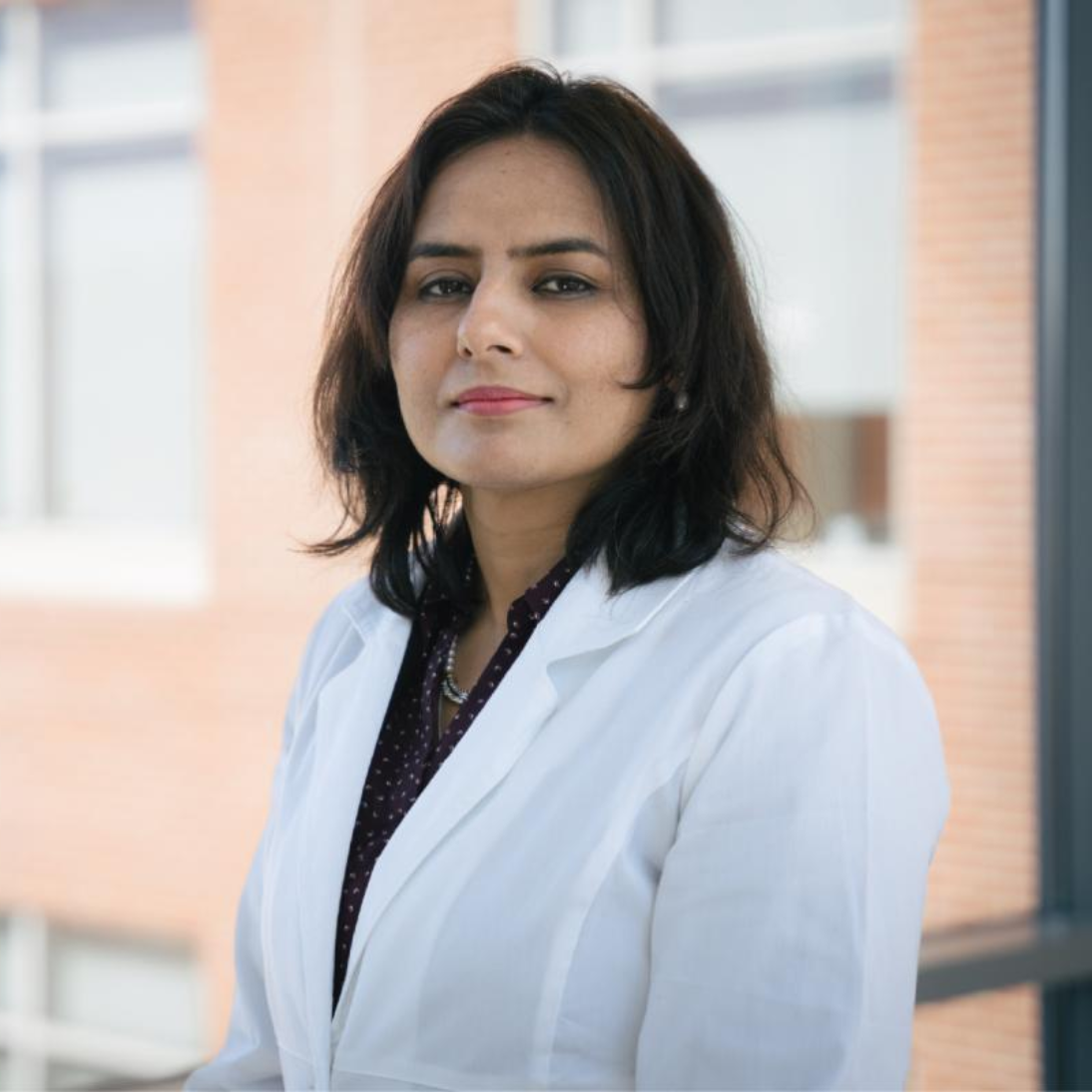
Nimrat Chatterjee
University of Vermont
As a mutagenesis and genome instability enthusiast, my career goals are to uncover mechanisms of mutagenesis that cause genome instability and disease. These interests are the result of the critical role of my mentors and guides during my Ph.D. at Baylor College of Medicine, with John Wilson (author of the Problems Book), and post-doctoral training at M.I.T. with Graham Walker, the pioneer in mutagenesis and SOS responses as we know them today. At MIT, I hosted the popular DRAM seminars. I was an active member of the Post-doctoral Association, offering rich experience and training in meeting preparation, community outreach, networking, leadership, and accountability outcomes.
Coupled with the high-impact mentorship and guidance I received, I am passionate about teaching and mentorship myself, which I have practiced and delivered since starting my lab at the University of Vermont. My teaching evaluations consistently score near-perfect 5s, and my lab is the only one on campus to have won two prestigious Barry Goldwater Scholarship Awards. I am only in the 5th year of my faculty position. However, these 5 years, which began during the height of the COVID pandemic and other hardships, have only helped me refine my academic skills and solidify my determination to contribute positively to Science and the community. Through practicing and implementing scientific discipline in complex situations, as well as strategic planning for lab finances and the admissions and education committees on campus, I gained first-hand and rigorous experience in governance, oversight, and professionalism. Therefore, I am very excited about my co-chair position with the Membership and Professional Development (MDP) committee at the EMGS. I will start this position in the coming academic year.
Finally, my lab has uncovered two fundamental mutagenesis-related biological phenomena. One of these discoveries is currently under patent review, while the other has won the R35 MIRA award for deciphering the novel aspect of the mutagenesis pathway. These instances have built a strong momentum of scholarship and discovery in my group. I have also worked s the editor for a special edition topic and have engaged in extensive reviewing of scientific articles over the past several years. From a research standpoint, I have come to appreciate the importance of the concepts of mutagenesis, genome instability, DNA repair, damage, and toxicity--concepts at the core of the EMGS mission, which I am passionate about upholding and advocating for.
My long-term vision is to contribute to the success of the EMGS society and community. My first meeting in 2014 in New Orleans opened so many doors of scientific and personal enrichment. I would like to uphold the standards for this society that helped build my career, but help the next generation reap similar awards.
I look forward to serving on the council and making a difference.
|

Tetyana Cheairs
New York Medical College
Tetyana Cheairs, M.D., M.S.P.H., received M.D. degree from the Ivano-Frankivsk National Medical University in Ukraine, and M.S. degree in Public Health from the University of North Carolina at Chapel Hill. She
conducted postdoctoral research at the U.S. FDA National Center for Toxicological Research related to the identification of molecular mechanisms involved in chemical-induced carcinogenesis, with a focus on epigenetic alterations.
In 2014, Dr. Cheairs joined New York Medical College as an Assistant Professor of Pathology, Microbiology and Immunology. At NYMC, she heads an innovative research program focused on the use of non-animal models for the study of hazardous effects of chemicals and validating alternative models for the replacement of animals in safety assessment.
In 2019, Dr. Cheairs was appointed Assistant Dean for Ph.D. Programs in the Graduate School of Biomedical Sciences, and in 2025 was promoted to the Associate Dean for Ph.D. Programs.
She is also involved in the activities of the Health and Environmental Sciences Institute (HESI) Genetic Toxicology Technical Committee (GTTC) Mechanism-based Genotoxicity Risk Assessment (MGRA) working group Nitrosamines Research Program.
Dr. Cheairs is a co-editor of the 7th edition of Hayes’ Principles and Methods of Toxicology textbook. She also serves as a reviewer for several established journals in the field of toxicology, including Toxicology Research and Food and Chemical Toxicology. She is a member of several professional societies, including Society of Toxicology, Genetic Toxicology Association, and American College of Toxicology.
|
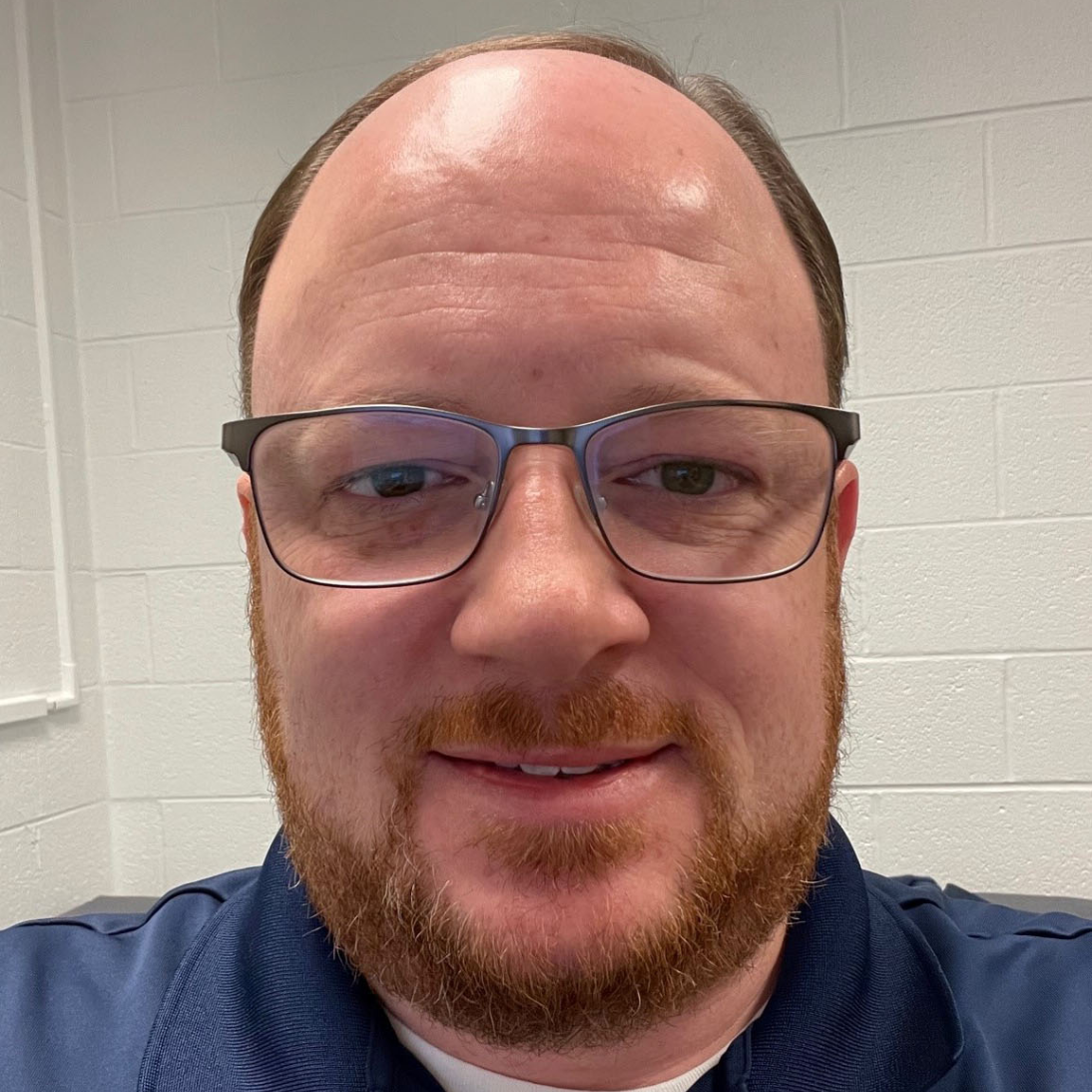
Michael Kemp
Wright State University
Dr. Michael Kemp is an Associate Professor in the Department of Pharmacology and Toxicology at the Wright State University Boonshoft School of Medicine in Dayton, Ohio and is a Research Health Scientist at the Dayton VA Medical Center. He received both a B.S. in Biological Sciences (1999) and Ph.D. in Biomedical Sciences (2006) from Wright State University, where he developed his initial interest in DNA metabolism. Dr. Kemp then moved to the University of North Carolina to train with Nobel Laureate Aziz Sancar M.D., Ph.D. and was involved in several projects associated with the mechanisms of nucleotide excision repair and DNA damage checkpoint signaling and their regulation by the circadian clock.
After nearly a decade in the Sancar laboratory, Dr. Kemp returned to Wright State University in 2016 to receive additional training in skin biology and to begin to translate his basic research interests to human skin.
Dr. Kemp’s laboratory at Wright State University is focused on understanding how human cells and human skin responds to DNA damage induced by both environmental carcinogens and pharmaceutical compounds. This work involves both fundamental studies of DNA repair and DNA damage kinase signaling in vitro and translational work with skin biopsies from human subjects both ex vivo and in vivo. In addition to developing new assays and read-outs of the DNA damage response in human skin, one of the goals of the Kemp laboratory is to understand why geriatric skin is at greater risk of developing non-melanoma skin cancers than the skin of younger individuals. His laboratory is composed of postdoctoral researchers, PhD students, and master’s students. He also teaches courses in the areas of genome stability and genetic toxicology.
Dr. Kemp has been a member of the EMGS since 2016, was a 2019 recipient of the EMGS Emerging Leaders Development Award and is the past Chair of the Awards and Honors Committee. He has also chaired several symposia at annual EMGS meetings. He looks forward to continuing to advance the mission of the EMGS.
|
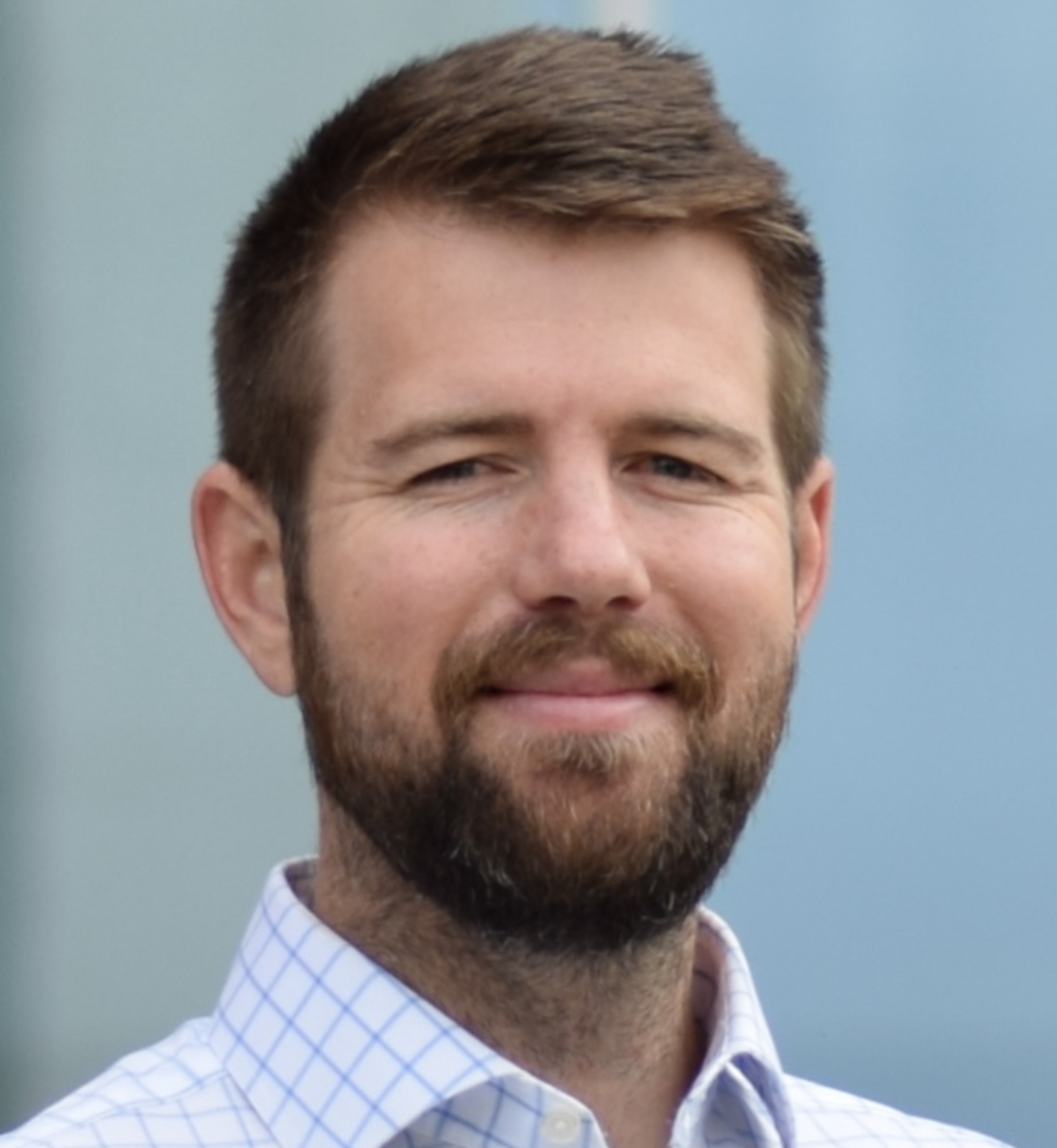
Tyler Weaver
University of Virginia School of Medicine
I am currently an Assistant Professor in the Department of Biochemistry and Molecular Genetics at the University of Virginia School of Medicine and a Member of the University of Virginia Comprehensive Cancer Center, where I started my independent research lab in January 2025. I began my scientific training at Florida State University, where I received a B.S. in Biology in 2013. I then completed a Ph.D. in Biochemistry in the Department of Biochemistry at the University of Iowa under the guidance of Dr. Catherine Musselman in 2019. Following my doctoral training, I completed my postdoctoral training in the Department of Biochemistry and Molecular Biology at the University of Kansas Medical Center under the guidance of Dr. Bret Freudenthal.
The overall objective of my independent research program is to understand the complex interplay between chromatin structure, chromatin modifying enzymes, and the repair of environmentally-induced DNA damage. Three key questions drive our current research: (1) How do chromatin modifying enzymes reorganize chromatin structure in response to environmentally-induced DNA damage? (2) How does chromatin reorganization facilitate the repair of environmentally-induced DNA damage? and (3) How do chromatin modifying enzymes restore chromatin structure following the repair of environmentally-induced DNA damage? Our lab addresses these questions using a powerful combination of biochemistry, single-molecule biophysics, structural biology, and molecular genetics approaches. Ultimately, our work will determine fundamental mechanisms governing DNA repair in chromatin that are important for understanding human health and disease, while simultaneously fostering the development of the next generation of scientists.
Over the past seven years, I have become an active member of the Environment Mutagenesis and Genomics Society (EMGS) and taken on several leadership positions within the society over the past several years. Since 2023, I have served as the Student and Early Career Investigator Co-chair and now as Co-chair of the Education, Student and New Investigator Affairs Subcommittee within the Membership and Professional Development Committee. Since 2024, I have also served as a Co-chair of the Mentorship and Networking Taskforce within the Membership and Professional Development Committee. I am extremely excited about the possibility of taking on additional leadership roles within the society to help achieve the EMGS mission of “understanding and mitigating the impacts of environmental exposures on the genome to protect human health through diverse and inclusive leadership in research, professional development, and collaboration.”
|

Matthew Meier
Health Canada
Matthew Meier is a Research Scientist and lead of the Genomics Laboratory in the Mechanistic Studies Division in the Environmental Health Science and Research Bureau (Health Canada).
His lab uses in vitro cell lines for the development of assays for assessing genotoxicity and other types of toxicity. Central to this goal are the complementary technologies of transcriptomics and error-corrected sequencing, which he uses to quantify toxicogenomic endpoints and mutations in the context of chemical risk assessment.
To help encourage the use of omics data in a regulatory setting, his lab develops and maintains reproducible and transparent bioinformatic workflows. He is a member of the OECDs Advisory Group on Emerging Science in Chemicals Assessment (ESCA) and co-leads development of the OECD Omics Reporting Framework.
|

Connie Chen
Health and Environmental Sciences Institute
Dr. Connie Chen is a trained and collaborative scientist dedicated to advancing efficiency and innovation in chemical safety testing and risk assessment. She graduated from the University of California Los Angeles and received her PhD and MPH from the University of California Berkeley’s School of Public Health, Environmental Health Sciences. Her master’s and doctoral research focused on the role of long-term air pollution and health effects, studying genetic polymorphisms and cytogenetic and molecular markers of exposure and disease.
Currently as a Senior Advisor at the Health and Environmental Sciences Institute (HESI), she provides strategic guidance and support to enhance collaborations and programs within the Center for Translational Sciences. For over a decade, Connie has led scientific and strategic management efforts for multiple technical committees, fostering a collaborative environment that drives meaningful research and programs to improve human and environmental health. She oversees all committee activities, ensuring their strategic growth and direction. These initiatives range from manuscript development and workshop organization to complex multi-site experimental studies and data analysis, offering firsthand insight into the challenges and opportunities of working across diverse stakeholder groups. She has established a strong reputation as a trusted, neutral convener, bringing together scientists from various disciplines to foster synergies, facilitate knowledge exchange, and build consensus on key scientific issues.
She has overseen an US FDA-funded 16-laboratory ring trial examining rat and hamster metabolic conditions for the Enhanced Ames Test for N-Nitrosamines. Additionally, she serves as the PD/PI of another US FDA-funded U01 grant. For the past several years she has been the senior manager for HESI’s Genetic Toxicology Technical Committee (GTTC), a consortium that brings together the premier applied genetic toxicologists from the public and private sector. This role has brought her back to her academic roots in genetic toxicology and has allowed her opportunities to understand the pressing issues facing academia, government and research institutions and the regulated private industries and work collaboratively to solve them. Throughout her career, Connie has led collaborative research initiatives to advance the safety of both pharmaceutical and chemical products, working closely with global regulators, industry partners, and academic leaders.
|
|














 2025 EMGS Program Chair
2025 EMGS Program Chair